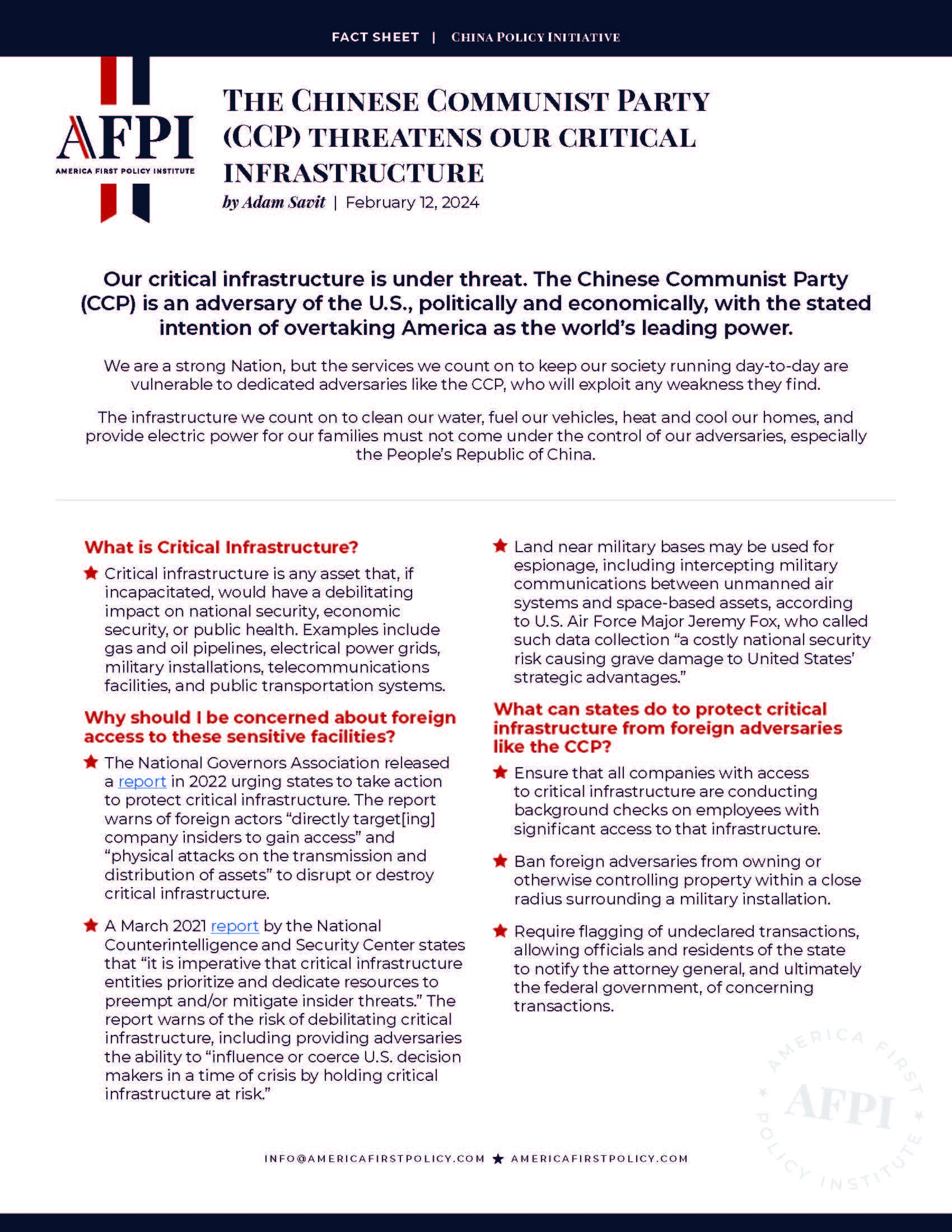The Chinese Communist Party (CCP) Threatens our Critical Infrastructure
Our critical infrastructure is under threat. The Chinese Communist Party (CCP) is an adversary of the U.S., politically and economically, with the stated intention of overtaking America as the world’s leading power.
We are a strong Nation, but the services we count on to keep our society running day-to-day are vulnerable to dedicated adversaries like the CCP, who will exploit any weakness they find.
The infrastructure we count on to clean our water, fuel our vehicles, heat and cool our homes, and provide electric power for our families must not come under the control of our adversaries, especially the People’s Republic of China.
What is Critical Infrastructure?
Critical infrastructure is any asset that, if incapacitated, would have a debilitating impact on national security, economic security, or public health. Examples include gas and oil pipelines, electrical power grids, military installations, telecommunications facilities, and public transportation systems.
Why should I be concerned about foreign access to these sensitive facilities?
The National Governors Association released a report in 2022 urging states to take action to protect critical infrastructure. The report warns of foreign actors “directly target[ing] company insiders to gain access” and “physical attacks on the transmission and distribution of assets” to disrupt or destroy critical infrastructure.
A March 2021 report by the National Counterintelligence and Security Center states that “it is imperative that critical infrastructure entities prioritize and dedicate resources to preempt and/or mitigate insider threats.” The report warns of the risk of debilitating critical infrastructure, including providing adversaries the ability to “influence or coerce U.S. decision makers in a time of crisis by holding critical infrastructure at risk.”
Land near military bases may be used for espionage, including intercepting military communications between unmanned air systems and space-based assets, according to U.S. Air Force Major Jeremy Fox, who called such data collection “a costly national security risk causing grave damage to United States’ strategic advantages.”
What can states do to protect critical infrastructure from foreign adversaries like the CCP?
Ensure that all companies with access to critical infrastructure are conducting background checks on employees with significant access to that infrastructure.
Ban foreign adversaries from owning or otherwise controlling property within a close radius surrounding a military installation.
Require flagging of undeclared transactions, allowing officials and residents of the state to notify the attorney general, and ultimately the federal government, of concerning transactions.
